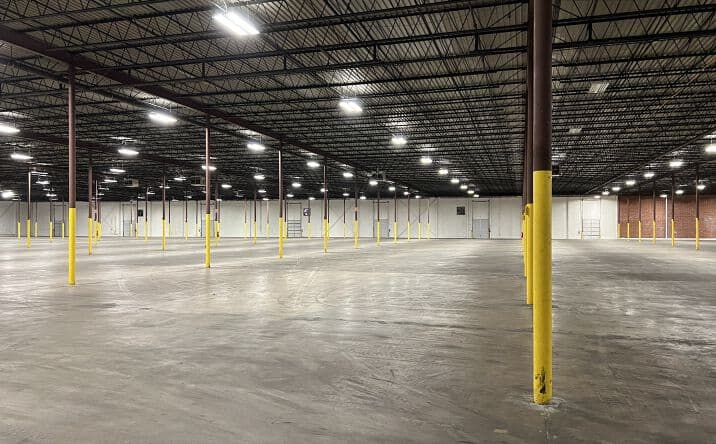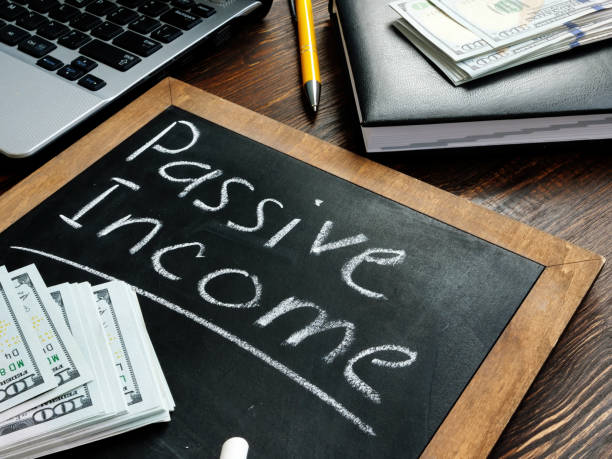In today’s highly competitive real estate market, the effectiveness of MLS (Multiple Listing Service) content is paramount to attracting potential buyers and standing out from the competition. With the rapid evolution of digital marketing, an optimized MLS content strategy is essential to ensure that real estate professionals are reaching the right audience, engaging effectively, and converting leads into sales.
An MLS content strategy refers to the planning, creation, and management of content used to promote real estate listings, brands, and services through MLS platforms and digital marketing channels. Optimizing this strategy involves refining the content, messaging, and tactics used to increase visibility, engagement, and ultimately, sales.
In this article, we will explore how real estate professionals can optimize their MLS content strategy to improve their marketing efforts and enhance their ability to convert potential buyers.
Why Optimizing MLS Content Strategy Is Important
Real estate is a dynamic and competitive industry, where MLS listings play a significant role in connecting buyers and sellers. Here are some reasons why optimizing an MLS content strategy is crucial:
- Improved Visibility: MLS content optimization ensures your listings appear in search results more effectively, reaching a wider audience.
- Increased Engagement: High-quality, targeted content drives more engagement from potential buyers and renters, leading to higher conversion rates.
- Better User Experience: Optimizing content makes it easier for potential buyers to understand key property features, guiding them through the buying decision process.
- Higher ROI: An optimized MLS content strategy leads to better lead generation, more property showings, and ultimately more sales.
By optimizing the MLS content strategy, agents and brokers can not only ensure higher visibility of their properties but also create a seamless experience for prospective buyers. This helps to build trust, promote transparency, and increase the likelihood of a sale.
Key Components of an MLS Content Strategy
Before diving into how to optimize an MLS content strategy, it’s important to understand the key components that contribute to the overall effectiveness of the strategy.
1. Property Listings
The property listing is the core component of an MLS content strategy. It provides detailed information about a property, such as the listing price, square footage, amenities, location, and other key features. Optimizing these listings ensures that they stand out to buyers, meet search engine optimization (SEO) standards, and present the property in the most compelling way possible.
- High-Quality Photos: Great photos are essential for capturing the attention of potential buyers. High-resolution images that showcase the property’s best features (e.g., exterior shots, key rooms, and unique attributes) make listings more visually appealing.
- Detailed Descriptions: A well-written, clear, and descriptive property description is vital. Avoid jargon and focus on the unique selling points of the property, highlighting its features and benefits. The description should also include keywords that potential buyers may use when searching for properties.
- Virtual Tours: Offering virtual tours or 3D walkthroughs is a powerful way to engage buyers who cannot visit the property in person. These features provide a more immersive experience, helping buyers visualize the space.
2. Social Media Content
Real estate agents and brokers can enhance their MLS content strategy by promoting their listings through social media platforms such as Facebook, Instagram, LinkedIn, and Twitter. Social media marketing is a cost-effective way to boost brand awareness, connect with followers, and engage potential buyers.
- Tailored Posts: Create posts tailored to each platform. For instance, Instagram is ideal for visually appealing images and short, engaging content, while LinkedIn might be more appropriate for professional insights or property investment opportunities.
- Interactive Features: Social media platforms offer features such as polls, stories, and live streaming, which can boost engagement. For example, a live virtual tour of a property can engage a wider audience and provide real-time interaction.
- Hashtags and Keywords: Using the right hashtags helps increase the discoverability of posts. Research relevant real estate and local hashtags to ensure that your posts reach the appropriate audience.
3. Blogging and Educational Content
A real estate blog can be an invaluable asset for MLS content strategy optimization. By publishing high-quality, informative articles, agents can position themselves as industry experts and drive organic traffic to their websites.
- Local Market Insights: Writing about the local real estate market, trends, neighborhood highlights, and things to do in the area can attract potential buyers who are interested in specific locations.
- Home-Buying Tips: Providing valuable advice on topics such as securing financing, understanding the home-buying process, and staging a property can help engage prospective buyers and sellers.
- SEO-Optimized Content: Optimize blog posts with relevant keywords to increase their visibility in search engine results. Include local keywords, long-tail keywords, and property-specific terms to improve search rankings.
4. Email Campaigns

Email marketing remains one of the most effective ways to nurture leads and keep potential buyers engaged. Real estate agents can leverage email campaigns to share new MLS listings, property updates, and personalized offers with subscribers.
- Targeted Email Lists: Segment your email lists based on factors such as buyer preferences, location, or past interactions with your business. Tailored emails are more likely to convert.
- Clear Calls to Action (CTAs): Include clear CTAs in your emails that encourage recipients to take the next step, such as scheduling a viewing, requesting more information, or downloading a home-buying guide.
5. Online Reviews and Testimonials
Reviews and testimonials play a crucial role in building trust and credibility in the real estate industry. Potential buyers are more likely to trust the experiences of previous clients or other buyers who have interacted with the agent or broker.
- Solicit Reviews: After closing a deal, ask satisfied clients to leave a review on your website or third-party review sites such as Google or Zillow.
- Display Testimonials: Use positive reviews and testimonials on your website, social media, and MLS listings to showcase your reputation and build credibility with new prospects.
Optimizing MLS Content Strategy
Now that we understand the key components of an MLS content strategy, let’s look at how to optimize each aspect to increase performance and effectiveness.
1. Use SEO Best Practices
Search engine optimization (SEO) is one of the most important factors in making MLS listings and associated content visible online. To ensure your MLS listings rank well in search engine results, follow these best practices:
- Keyword Research: Identify relevant keywords for the properties you’re listing, such as neighborhood names, property features, and property types. Use keyword research tools to identify search terms that buyers are likely to use.
- Optimize Listing Descriptions: Include your target keywords naturally within listing descriptions. However, avoid keyword stuffing, as this can negatively affect readability and SEO rankings.
- Meta Tags and Titles: Ensure that each property listing has optimized meta tags and titles. These elements provide search engines with important information about your content and can improve click-through rates.
- Local SEO: For better visibility in local searches, ensure that your content includes location-specific keywords. This helps people searching for properties in specific areas find your listings.
2. Mobile Optimization
With an increasing number of homebuyers browsing properties on their mobile devices, it’s critical to ensure your MLS content is mobile-friendly. Websites, listings, and other content should load quickly and display well on smartphones and tablets.
- Responsive Design: Use responsive web design to ensure your MLS listings and blog content automatically adjust to different screen sizes and devices.
- Mobile-Optimized Images: Ensure that images and videos are optimized for mobile viewing to enhance load times and the overall user experience.
3. Use Data to Refine Your Content
MLS content strategy optimization isn’t just about creating good content; it’s also about using data to understand what’s working and what needs improvement.
- Analytics: Use website analytics tools like Google Analytics to track the performance of your MLS listings and other content. Monitor metrics such as page views, bounce rates, and conversion rates to identify areas for improvement.
- A/B Testing: Conduct A/B testing on various aspects of your content, such as listing descriptions, email subject lines or social media posts. This allows you to compare different versions and determine which one yields the best results.
4. Leverage Retargeting Ads
Retargeting ads allow real estate professionals to reach individuals who have previously visited their website or interacted with their MLS content. This tactic can be highly effective in keeping potential buyers engaged and reminding them about properties they viewed.
- Personalized Ads: Use retargeting ads to display personalized content based on users’ previous interactions. For example, if a user views a particular property, show them ads related to similar listings or the same property.
5. Create Engaging Video Content
Video content is becoming increasingly popular, especially for showcasing MLS listings. Virtual tours, property walkthroughs, and agent introductions can be highly effective in driving engagement.
- High-Quality Video Tours: Provide potential buyers with detailed video tours of properties, allowing them to see the space from every angle. This type of content can increase the likelihood of generating leads and sales.
- Live Streaming: Consider using live streaming on social media platforms to host virtual open houses or property tours. This allows viewers to ask questions in real-time and provides an interactive experience.
Conclusion
Optimizing an MLS content strategy is essential for real estate professionals who want to stand out in a competitive market, attract more buyers, and increase their sales. By focusing on high-quality content, SEO optimization, mobile-friendly experiences, and leveraging the right marketing tools, agents can ensure that their MLS listings and marketing campaigns are effective and impactful.
By continuously refining and analyzing their content strategy, real estate professionals can improve their ability to connect with potential buyers, build trust, and ultimately close more deals. With the right tools and approach, MLS content strategy optimization can be a game-changer for those in the real estate industry.













